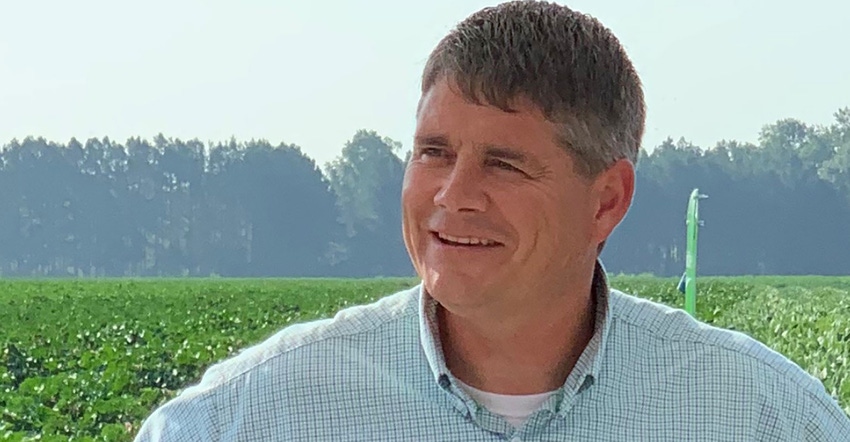
The crop protection industry, often the target of environmental extremist’s vilification, sees improved communication with the general public as an important aspect of doing business.
Hank King, general manager for PhytoGen cotton seed, says the industry is working to counter public misconceptions about the plant protection industry and agriculture in general.
“At Corteva Agriscience, we’re doing everything we can to reach out to the public and to spend time with consumers, helping them understand what we do, how we do it, why we do it,” King said at a recent PhytoGen field day in Lee County, S.C.
King manages the cotton seed business for Corteva “from California to Virginia and everywhere in between.”
He said the public perception mission may not be one of the largest of Corteva’s objectives but is growing in importance.
“It may be a small part of what we’re doing to try to make a difference,” he said. “But we’ve gotta magnify that and make sure the world knows we’re doing the right things to take farming to the next level and to make sure that farmers are able to feed, fuel and clothe the world.”
Are consumers open to hearing that message? “Absolutely. I think consumers trust farmers when they understand what they’re doing.”
Sustainability message
He says a sustainability message, an industry protocol that focuses on managing resources, resonates with the general public. “Farmers are the best stewards in the world, but we need to let the general population know what we and they are doing.
“I think about producers I know, some of the best stewards in the world at managing their resources. One, because they have to; if they don’t manage their resources well, they’re not going to survive in farming.
“Also, I think there’s an inherent desire in our producers to do the right thing — the right thing for the land, the right thing for the environment and the right thing for the crop they’re trying to produce. Their sustainable production practices allow them to feed, fuel and clothe the world.
“I don’t think we talk about that enough, but I do believe growers are trying to do the right thing. I applaud them for what they’re doing, and we need to make sure we’re listening to them and coming along with them, looking for ways we can help get their stories out. We also need to continue to challenge each other as well in thinking about how we can do this better because the world is watching.”
King says product stewardship plays a key role in Corteva’s sustainability protocol. Seed technology viability is an important factor.
“When I think about viability, I think about the technology within our varieties, like WideStrike 3 or the Enlist weed control system. Those products are allowing us to farm better, more efficiently, more effectively than we ever have.
“But if we don’t take care of those technologies, we’re going to have a problem. We ask growers to look at intense scouting procedure for worms in cotton and spraying when thresholds are met, not before.
“We’re also looking deeper into our portfolio to see about the next generation, about Bt combinations we can develop to stay ahead of sucking pests, for instance.”
Preserve effective herbicides
Preserving effective herbicides against weed resistance is another industry-wide imperative accelerated by pigweed resistance.
“We see the same challenges with herbicides that we do with varieties — product stewardship. We think about the Enlist weed control system and understand that growers need to use all the tools available to them, like a pre-emergence herbicide coupled with Enlist One or Enlist Duo to follow a systems approach. It’s part of a sound weed resistance management program.
“It’s a responsibility of the grower and a responsibility of the manufacturer to do our jobs and manage these technologies in a way that allows them to be used for many, many years.”
Continued research and development, King says, along with maintaining viability of varieties and products currently available, will help keep farmers efficient and sustainable and will provide consumers with food, fuel and clothing, while protecting the environment.
About the Author(s)
You May Also Like






